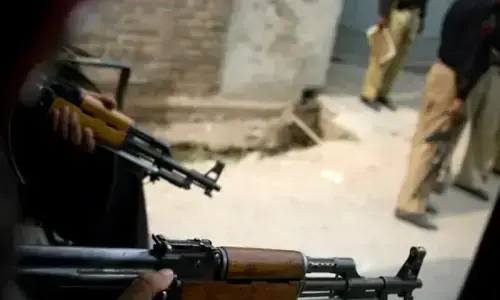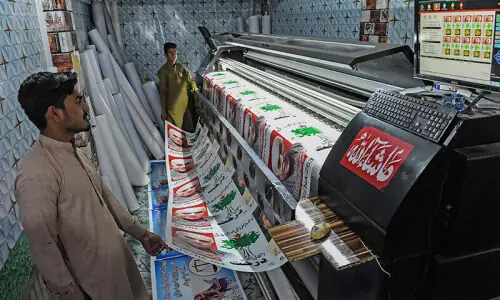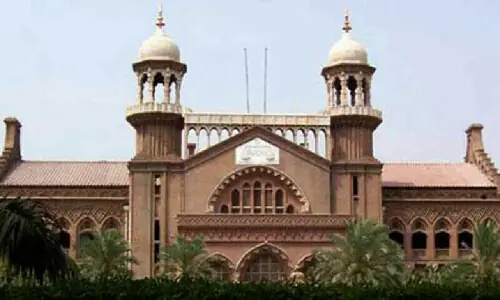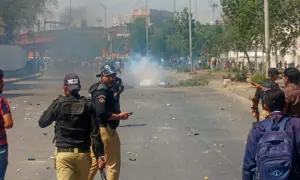As soon as the government announced reopening of tourism among other sectors, virtually ending any semblance of a lockdown in the country, pictures started flooding social media timelines of individuals and families making their way to various tourist destinations across the country, particularly in Gilgit-Baltistan and Khyber Pakhtunkhwa. But were those areas even prepared to host an influx of desperate travellers all of a sudden? Tour operator Aneeqa Ali does not think so. She, instead, believes the official announcement to reopen was abrupt.
A tour operator since 2017, Aneeqa realised last year how important it was to work towards sustainable tourism. While working in the industry, she got to interact with other women sharing her passion and belief in the importance of responsible travel and sustainable tourism. They started brainstorming about the social aspect of tourism, sustainability, responsibility, advocacy, benefiting local communities and linking tourism with other sectors. While they were still floating ideas, the Covid-19 pandemic broke out and tourism was one of the hardest hit sectors.
This gave birth to an all-women organisation, Root Network, aimed at creating an inclusive tourism industry by increasing access to meaningful economic opportunities for local communities, promoting local culture and advocating for sustainable development and responsible travel practices. Their pilot project – in Hunza and Gilgit right after Ashura – focuses on capacity building around Covid-19 because, in Aneeqa’s words, the idea of travelling and the way to travel will change around the world, and everyone will have to adapt to the new normal.
Through training sessions, the organisation plans to build capacity of hotels/guest houses, tour operators, guides and the local community to deal with the expected onslaught of tourists. They want to translate the difficult SOPs for the stakeholders in easy language. A second aspect is providing Covid safety kits to the trainees, including infrared thermometers, disinfectants, reusable masks made by local artisans, hand sanitisers, antibacterial soaps, face shields and informative posters.
“We are trying to source these things locally so that not only can they be easily replenished, but this will also help local small businesses. We are also offering financial incentives to the trainees for allocating their time because they have been out of business for a long time, so this will provide some immediate relief. We will also train local ambassadors (training the trainer) who can later keep spreading the message,” explains Aneeqa.
According to the National Tourism Coordination Board, the hotel industry lost around Rs100m in February only, hotel bookings dropped from 95pc to 40pc in January-March, travel/hospitality industry anticipates major losses for 2020-21. The Pakistan Association of Tour Operators reported 100pc cancellation of tour bookings for spring with an estimated loss of $10m. They also expected 90pc reduction in the arrival of foreign tourists during 2020.
In the last few years, tourism in Pakistan had flourished like anything with the sector becoming a major contributor to the country’s GDP. World Travel and Tourism Council reports that tourism in Pakistan generated Rs2.3 trillion ($16.8 billion) in 2019.
But Aneeqa feels the two-day notice to reopen tourism sector from Aug 8 wasn’t enough for the stakeholders to prepare to host a massive amount of tourists to the northern areas.
“The kind of infrastructure we have up there, it’s not enough to write things in a document and say we have detailed all SOPs and now it’s their job to implement them. The local communities face a lot of barriers; they lack economic capacity, technical expertise, there’s a communication gap also.”
What may be an ‘abrupt’ decision could be attributed to the fact that the government was apparently under pressure by tourism professionals who had been out of job for five months. There were protests on the Karakoram Highway, tour operators in Lahore and Islamabad also took to the streets. Yet, the government tried to delay the reopening of the sector as much as possible.
During the 10-day training, Root Network will train staff of 12 hotels, 90 tour guides and six local ambassadors in Gilgit and Hunza – two of the top tourist destinations that were frequented by around 1.5 million people last year, claims Aneeqa.
Now that tourism is officially open and anyone who gets a chance is travelling to the cooler regions in the north, hotels, guesthouse, tour operators, guides must be occupied or eagerly awaiting tourists to somewhat make up for the lost bucks. In which case, getting their attention and convincing them to attend the trainings could become a challenge for the group.
“When we planned our training, tourism hadn’t reopened. Now, people have started travelling and hotels must be occupied. They may not want to spare staff because their preference will be engaging tourists. So we have adjusted our curriculum accordingly, reduced time slots to ensure enough participation. We have been in touch with the Upper Hunza assistant commissioner who is fully supportive of the idea, as well as local development organisations and logistics partners who will connect us with the beneficiaries.”
For the sustainability of the project and to assess its long-term impact, the group looks to engage local ambassadors trained through the programme to help them monitor and evaluate the results of the trainings. Aneeqa says, “Our plan is to continue contact and support our beneficiaries based on feedback we get through post-training check-in to continue addressing need as they’re identified”.
Published in Dawn, August 23rd, 2020

































